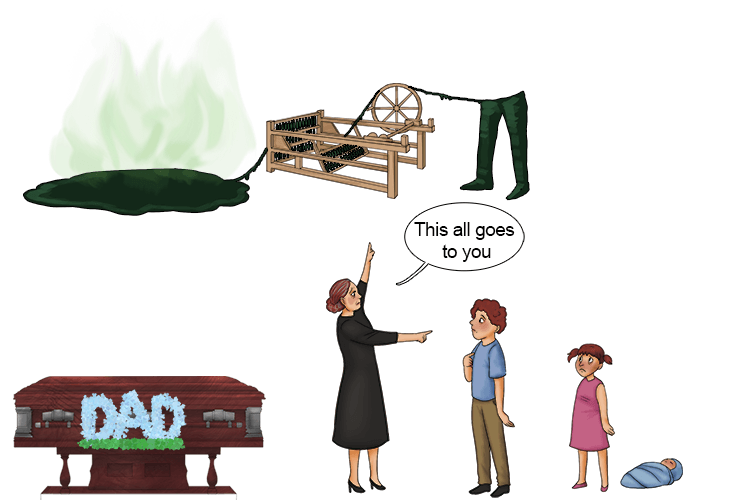Law of Primogeniture
(Pronounced prahym-oh-gen-i-cher)
Law of primogeniture is the custom by which all of a family's property goes to the son when the father dies.
To remember the pronunciation and to remember that everything goes to the oldest son, use the following mnemonic:
A primordial sludge with strong odour was put into a spinning jenny and nature created a human.

Primogeniture means 'first born' in Latin, referring to the eldest male child, excluding females from inheriting. This was a common practice in England and has been used in the British Royal family's line of succession.
Royal Succession
The British Royal family's line of succession was based on male-preference primogeniture until the Succession to the Crown Act 2013 which changed the rules to allow female heirs to take precedence over young male heirs.
Modern Inheritance
In many modern societies primogeniture had been replaced by laws that allow equal inheritance for all children, regardless of gender or birth order.
Macbeth
The law of primogeniture was not followed in medieval Scotland meaning the King's son wasn't necessarily next in line to the throne. Scottish succession, then, involved the election of a suitable candidate from qualified families. This is why, despite King Duncan having two sons, Macbeth firmly believes that he can be named the next ruler.




